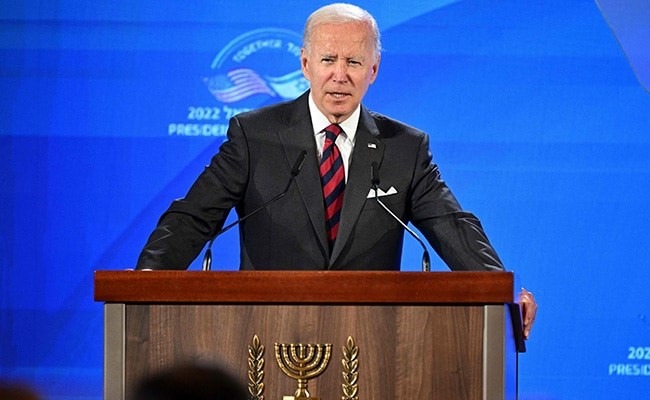| Translate This News In |
|---|
After 18 months of arduous talks and a lengthy night of debate, the US Senate ratified Joe Biden’s ambitious climate, tax, and health-care proposal on Sunday, a big victory for the president ahead of important midterm elections.
Democrats adopted the $430 billion spending proposal as a unified bloc, with Vice President Kamala Harris casting the deciding vote. It will now head to the House of Representatives next week, where it is likely to pass before being signed into law by Biden.
The plan, designed in sensitive discussions with members of his Democratic Party’s right wing, would contain the largest US climate investment ever — $370 billion targeted at achieving a 40% reduction in greenhouse gas emissions by 2030.
That would offer Biden a clear victory on one of his main agenda issues and help to restore US leadership in solving the global climate crisis.
Biden praised the bill’s passing, stressing the effort that went into it but acknowledging that not everyone is pleased with the end result.
“It necessitated numerous concessions. Doing significant things almost always yields positive results. The House should act quickly on this, and I look forward to signing it into law “In a statement, the president stated.
Automobiles powered by electricity
Ordinary Americans would be eligible for a tax credit of up to $7,500 when purchasing an electric vehicle, as well as a 30% reduction for installing solar panels on their roofs.
It would also contribute millions of dollars to assist safeguard and conserve forests, which have been more destroyed in recent years by wildfires caused by record heat waves linked to global warming, according to scientists.
Billions of dollars in tax credits would also be given to some of the country’s worst polluting businesses to aid in their transition to greener methods – a provision passionately opposed by some liberal Democrats who, after months of anguish, have accepted this as the least-bad option.
Biden, who came into office promising significant improvements, has seen his aspirations smashed, rekindled, and then dashed again.
Democrats’ tiny Senate majority has effectively granted a veto to moderates like West Virginia Senator Joe Manchin, who previously used that power to oppose Biden’s far more broad Build Back Better plan.
However, in late July, Senate Democratic leader Chuck Schumer was able to reach an agreement with the West Virginian, whose state’s economy is highly reliant on coal mining.
Finally, senators began debating the document on Saturday.
‘Vote-a-rama’
Late in the day, senators began what is known as a “vote-a-rama,” a marathon procedure in which members can propose hundreds of amendments and demand a vote on each one.
This allowed Republicans, who believe Biden’s plan is too expensive, and liberal Democrats, who believe it does not go far enough, to express their opposition.
Throughout the evening, influential progressive Senator Bernie Sanders used that platform to submit many changes aimed at reinforcing social planks in the legislation, which had been significantly eroded throughout the months of discussion.
The law would provide $64 billion for health-care efforts and secure a reduction in some prescription costs, which can be ten times higher in the United States than in other rich countries.
However, progressive Democrats have long had to abandon their hopes for free preschool, community colleges, and expanded healthcare for the elderly.
“Millions of seniors will continue to have decaying teeth and will be denied the dentures, hearing aids, or spectacles that they deserve,” Sanders stated from the Senate floor. “As it stands, this law does nothing to solve it.”
However, fellow Democrats, eager to approve the law before the November midterm elections in which control of Congress is at risk, have opposed any changes to the language.
To help offset the plan’s large expenditure, it would lower the US deficit by imposing a new 15% minimum tax on firms with income of $1 billion or more – a move that would target some that currently pay significantly less.
According to some estimates, this policy might raise more than $258 billion in tax receipts for the government over the next ten years.


















